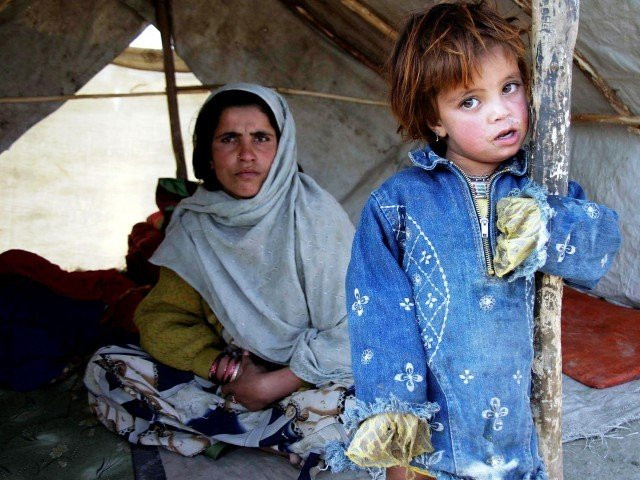A home without food: Afghan refugees return to malnourished country
Food insecurity and other problems put health at risk

A file photo of Afghan refugees.PHOTO: AFP
Forced to leave Pakistan, a place some Afghan refugees have called home for many years, they return to a native country plagued by severe malnourishment and food insecurity.
Against the host of problems they already face, the poor health conditions and malnutrition encountered by these refugees are often overlooked. This past January saw a surge of Afghan refugees being repatriated to their homeland due to relocation campaigns by the K-P government and camp closures, says a United Nations High Commission for Refugees (UNHCR) report.
According to NADRA and the Federal Interior Ministry, an estimated three million Afghan refugees, both registered and unregistered, live in Pakistan. A large portion of them reside along the western frontiers of K-P, Fata and Balochistan.
The K-P government’s current focus remains on expelling Afghan refugees in order to eliminate the threat of terrorism. This is despite the fact that a recent survey revealed severe and even chronic malnutrition in the war-torn neighbouring country.
Just as Pakistan’s malnutrition problem was brought to light by Unicef in the wake of the 2010 floods, the health of Afghan nationals during the repatriation process needs to be taken into consideration, officials say.
The present scenario presents an opportunity for the governments of Afghanistan and Pakistan, as well as international NGOs, to help the thousands of refugees return to proper health.
According to Nur Centre for Research and Policy in Lahore, approximately 300,000 deaths occur annually in Pakistan due to malnutrition. Unicef’s current data points towards a potentially higher mortality rate with 30% of children malnourished and lacking safe drinking water.
In comparison, a World Bank nutrition survey from November 2010 states that one-third of all child deaths in Afghanistan are caused by malnutrition. In the last four years, not much has improved in the volatile country despite a civilian government coming into power as long as five years ago.
Although Pakistan does not have an ideal record in dealing with its own citizens’ malnutrition, there are programmes in place to eliminate the problem. “While there isn’t a specific Afghan refugee programme in K-P or Fata, they are living in communities with Unicef nutrition programmes,” Pakistan’s UNICEF Chief of Nutrition Melanie Galvin tells The Express Tribune. “They receive all services available.”
Galvin continues to specify the types of available care. “These include sufficient Vitamin A and multiple micronutrients as well as identification and treatment of moderate or severe malnutrition.”
Regardless, Unicef facilities are not available to all in need. Moreover, they do not address the needs of families with children who have special dietary considerations.
Abdul, an Afghan refugee living on Peshawar’s outskirts, has a two-year old girl with multiple food allergies. “In order for my daughter to tolerate most foods, she relies on medicine that my relatives in England send to us,” he says. “Otherwise, it would be very difficult for us to give her the nutrients she needs to grow up strong and healthy.”
However, Abdul is among the fortunate ones who are financially able to provide proper care for their little ones without an NGO’s assistance.
Akhil Iyer, a Unicef representative in Kabul, explains to The Express Tribune that not only are lack of vitamins and nutrients a problem, food security is also a dire concern among Afghans living in their home country or in parts of Pakistan.
“Strategies to support initiation and promotion of exclusive breastfeeding and complementary feeding are key,” he stresses. “These appropriate infant and young child feeding strategies must be promoted on a national level, coupled with efforts to ensure therapeutic feeding of severely malnourished children.”
Less than a quarter of children in Afghanistan receive the minimum acceptable diet, according to a recent Afghan government survey.
Published in The Express Tribune, March 8th, 2015.













COMMENTS
Comments are moderated and generally will be posted if they are on-topic and not abusive.
For more information, please see our Comments FAQ